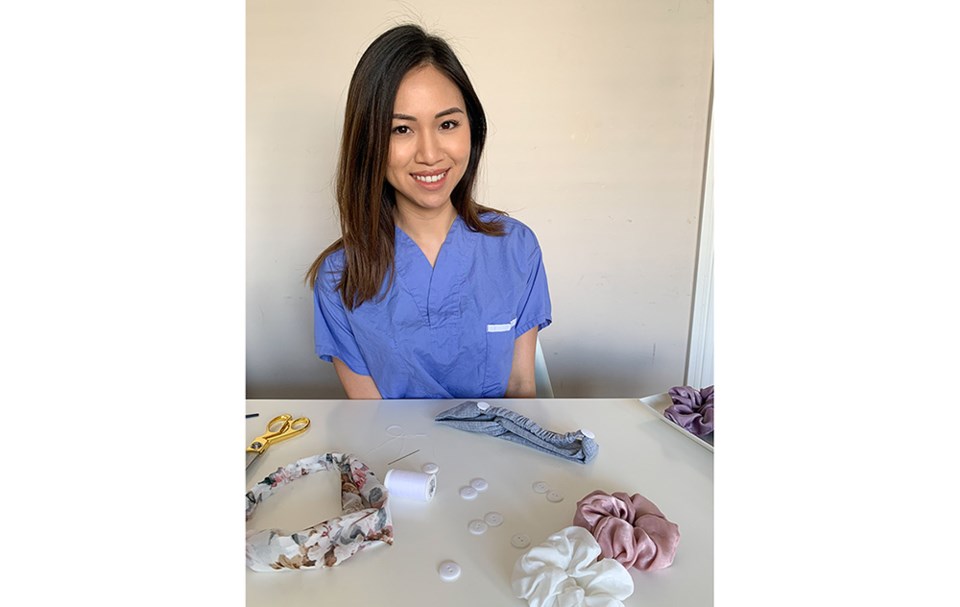Getting relief for her ears in a stylish way was the main reason a Richmond healthcare worker decided to start making headband earsavers, and all proceeds will go towards supporting local mental health programs in the Lower Mainland.
Angela Ha, an x-ray technologist at Richmond Hospital, had enough of the plastic earsavers that she says not only didn’t work well for her, but would get tangled in her hair.
“I wanted to create a different type of the earsavers, one that was user-friendly, stylish and could help protect my ears from the mask straps at the same time,” said Ha.
She told the Richmond News that her online store, The Rosy Weekend, and the concept of a fabric headband earsaver came to her as she was leaving a night shift from the hospital and says the idea was just a way to “solve (her) own problem.”
“I never intended the headband to be a business because it was just to make me feel more comfortable while working, and when I showed it to my coworkers that’s when I started getting orders for them,” said Ha, adding that at one point, she had a 30-person wait list for the headbands.
“I couldn’t keep up with the demand and had to order pre-made headbands and sewed the buttons myself, but I’m currently developing a template for the headband with my aunt who has access to a sewing machine.”
The headbands are made of fabric with two buttons hand sewn on both sides to hold the mask snug to the face.
“Wearing masks properly is important, but it is difficult to wear them for 40-hours a week if you’re a healthcare worker with sore ears.”
According to Ha, wearing a mask with a “good seal near the nose bridge” is the best way to protect yourself, especially during the pandemic.
“If there is a gap there, then wearing a mask is pointless,” she said.
For those wearing glasses, Ha suggests placing a layer of tissue inside the mask to help absorb the moisture and potentially keep their glasses from fogging up.
Meanwhile, Ha is looking to partner with local mental health programs with her new business.
“Many people in my life have been affected by mental illnesses so I want to give back to programs that can help them,” said Ha.
She has partnered with Kelowna-based Mamas for Mamas, a charity supporting mothers and caregivers, where 30 per cent of proceeds from the purchase of one of her specific headband designs will be donated to the organization.
“I don’t want to say no to charities, and I really love what they stand for, but I also want to find a mental health-focused organization to work with.”

.jpg;w=120;h=80;mode=crop)

